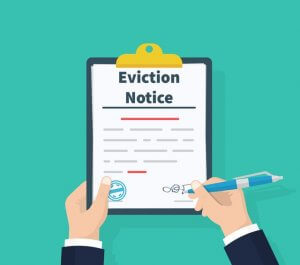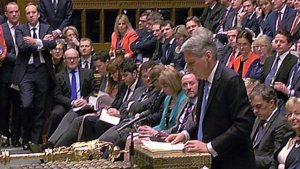- Residential property

Longer Reads
CORONAVIRUS AND RESIDENTIAL CONVEYANCING – PRACTICAL ADVICE
Advice for individuals buying and/or selling a home during the coronavirus outbreak
6 minute read
Published 6 April 2020
Key information
- Services
- Residential property
Last week, the government issued advice to both the public and those in the industry about residential property transactions during the coronavirus outbreak. Whilst they state that there is no need to pull out of transactions, where the property is currently occupied, they are encouraging people to delay moving until the stay-at-home measures against coronavirus are no longer in place. Where the property is vacant, the government’s advice is that you may continue with the transaction although you should follow their guidance on home removals.
The government has offered advice to the public, depending on what stage they are at in the process of buying and/or selling a home during the coronavirus outbreak. We have set out the advice below and have added some further information and practical advice gained from our own experience and from having spoken to estate agents, mortgage brokers and removals companies.
If your home is not yet on the market
If you were planning to put your home on the market this spring but have not yet done so, the stay at home measures will make it difficult to start the process now for the following reasons:
- estate agents have been told to close their offices and work from home so they will not be able visit your property and provide you with a market appraisal;
- you should not invite unnecessary visitors to your home which would prevent having professionals attend to take marketing photos and prepare floor plans and energy performance certificates; and
- viewings should not take place (other than virtual viewings).
However, there are practical steps that you can take during the stay at home measures to prepare for selling your home which could help speed up the marketing and conveyancing process. Read our article for further advice.
If your home is already on the market
If your home is already on the market but you have not yet accepted an offer or exchanged contracts, you can continue to advertise the property as being for sale. However, you cannot allow people in for viewings. It is possible that you can allow virtual viewings either yourself or via the agents. However, these are not ideal for the following reasons:
- Issues of privacy – you may not want a video of your home to be available online.
- A viewing in person with an estate agent pointing out the property’s highlights and answering any questions will probably stand a better chance of success than a virtual viewing. If a potential buyer does a virtual viewing of the property and then dismisses it, it would be very difficult to then persuade them to then go and see the property in person when the stay-at-home measures are lifted so you could be losing a potential buyer.
- Very few buyers will be willing to make an offer on the basis of a virtual viewing and even fewer still would exchange contracts without having visited the property in person.
Accepting offers and exchanging contracts
If you were to receive an offer whilst the country is in lockdown, there is nothing to stop you accepting it. As a general fall in property prices is being widely predicted, if you do receive an offer close to the current asking price, you may be well advised to accept it. However, until exchange of contracts takes place, the offer is not binding and can be withdrawn at any point.
If an offer is made and accepted now, the parties can try to progress the transaction in the usual way but there may be significant obstacles to achieving exchange of contracts as a result of the coronavirus pandemic such as:
- surveys cannot be carried out as surveyors are not allowed to visit properties;
- for the same reason, mortgage valuations may not be carried out which means that mortgage offers are being delayed (although some lenders are making offers of up to 60% loan to value on the basis of a desktop automated valuation);
- some lenders have stopped taking applications and others have reduced their loan to value thresholds due to fears about a drop in house prices and the ability of borrowers to meet their mortgage commitments;
- it may not be possible to obtain search results, particularly for local authority searches, as some local and other authorities do not have the capability to provide the results whilst working remotely;
- changes in the buyer’s circumstances due to furloughing, pay cuts, redundancies and businesses collapsing may lead to mortgage offers being withdrawn; and
- perhaps most importantly, the fear of a change in financial circumstances and/or a fall in property prices may mean that many buyers are not willing to commit themselves to a house purchase at this time.
If you are able to overcome these hurdles and reach a position where you are ready to exchange contracts, the government’s advice is that you can continue with the transaction if the property is unoccupied. However, if it is currently occupied, they recommend delaying exchange until after the stay-at-home measures have been lifted. If you do exchange contracts during this period, the contract should include explicit contractual provisions to take account of the risks presented by the virus, such as allowing for the completion date to be delayed in the event of the parties and members of their household being in self-isolation.
Following exchange of contracts
If you exchanged contracts prior to the introduction of the stay-at-home measures and completion is scheduled to take place in the next few weeks or months, the government’s advice depends on whether the property is occupied. If the property is unoccupied, you can proceed with completion provided that the measures in relation to social distancing are adhered to. This is on the assumption that you can obtain the necessary removal services. Most removals companies are still operating and carrying out removals which are already scheduled but there may be shortages of staff if they have to self-isolate.
If the property is occupied, the government’s advice is to try to delay completion if possible. One issue with delaying completion is that, if the buyer is taking a mortgage, their mortgage offer may expire before the postponed completion date. The government have sought to agree with banks that mortgage offers should be extended in these circumstances for up to three months to prioritise safety. They state in the guidance that:
If a customer’s circumstances change during this three month period or the terms of the house purchase change significantly and continuing with the mortgage would cause house buyers to face financial hardship, lenders will work with customers to help them manage their finances as a matter of urgency.
Whilst they are recommending that house moves are delayed, the government accept that moving may be unavoidable where you are contractually bound to complete and to give vacant possession on a certain date and a postponement cannot be agreed. If one party still wants to complete on the contractual completion date but the other does not, there is the possibility of a dispute. If one party refuses to complete on the completion date, the other party who was willing and able to complete could argue that the defaulting party is in breach of contract. They could then take the matter to court seeking either payment of damages or specific performance (i.e. forcing completion to take place) or both. The party who refused to complete would argue that the contract has been frustrated by the coronavirus and that they cannot be expected to comply. It would be a matter for the courts to decide and their decision could go either way.
Where both parties wish to complete on the contractual completion date, they may proceed to do so. The government has stated that, with the new emergency enforcement powers that the police have been given to respond to coronavirus, there is an exemption for critical home moves, in the event that a new date is unable to be agreed. However, there are other practical issues to be taken into consideration:
- You will be asked to sign certain documents (the transfer, mortgage deed/legal charge) which need to be witnessed by another person who must be aged over 18, not related to you and not a party to the transaction. Unless you have such a person living in your household, you will need to find another person to witness your signature which potentially involves breaching the stay-at-home measures as it is not one of the permitted reasons for leaving your home. The witness should stand at least 2 metres away from you but they need to see you sign the document. The witness will also need to sign the document meaning you will both need to touch it so we would recommend wearing gloves, washing your hands before and after signing and using separate pens.
- Due to the stay-at-home measures, your solicitor is likely to be working from home so you may need to send the original documents to your solicitor’s home address as they need these in their possession in order to complete.
- There may be delays and interruptions with the postal service so you should ensure that original signed documents are sent to your solicitor well in advance of the completion date. Alternatively, you may want to consider using a courier service instead of the post.
- When sending funds to your solicitor’s client account or providing them with your account details, you should always telephone them first to verify the account details. Solicitors’ emails are a major target for hackers who alter the account details to divert the funds to their own account. This is true at any time but there has been a reported increase in this crime at present.
- It is possible that removals companies may suffer staff shortages due to coronavirus so it is advisable to book your removals company as early as possible and check with them on a regular basis to ensure that they are still able to carry out your move.
- Unfortunately, there will be situations where the buyer or seller or someone in their household will contract the coronavirus at the time of the scheduled completion. In these circumstances, they will need to self-isolate and they may be physically too ill to move. It is therefore possible that the move has to be called off at the last minute which may cause considerable problems. In these circumstances, you should contact your solicitor who can negotiate with the other party to agree a solution and they will advise you on your legal rights.
It is certainly a challenging time to be buying or selling a home but moves are still continuing to take place. We are doing all we can to assist our clients in achieving completion where they wish to do so or agreeing a delay with the other party where this is preferable.
It should be noted that the guidance applies to people buying or selling residential homes which they intend to live in. If you are buying a residential property as an investment and you intend to let it then the advice to delay the purchase would not necessarily apply. If the property is already let and the current tenancy agreement is to remain in place after completion, the transaction will not involve anyone physically moving. If the property is vacant and you intend to let it after completion, it should still be possible to complete. However, it will be very difficult to market a property and find a tenant whilst in lockdown as viewings of the property will be virtually impossible. Whether the property is currently vacant or occupied, most of the problems noted above regarding the practicalities of the conveyancing process will still apply.
Longer Reads
CORONAVIRUS AND RESIDENTIAL CONVEYANCING – PRACTICAL ADVICE
Advice for individuals buying and/or selling a home during the coronavirus outbreak
Published 6 April 2020
Associated sectors / services
Authors
Last week, the government issued advice to both the public and those in the industry about residential property transactions during the coronavirus outbreak. Whilst they state that there is no need to pull out of transactions, where the property is currently occupied, they are encouraging people to delay moving until the stay-at-home measures against coronavirus are no longer in place. Where the property is vacant, the government’s advice is that you may continue with the transaction although you should follow their guidance on home removals.
The government has offered advice to the public, depending on what stage they are at in the process of buying and/or selling a home during the coronavirus outbreak. We have set out the advice below and have added some further information and practical advice gained from our own experience and from having spoken to estate agents, mortgage brokers and removals companies.
If your home is not yet on the market
If you were planning to put your home on the market this spring but have not yet done so, the stay at home measures will make it difficult to start the process now for the following reasons:
- estate agents have been told to close their offices and work from home so they will not be able visit your property and provide you with a market appraisal;
- you should not invite unnecessary visitors to your home which would prevent having professionals attend to take marketing photos and prepare floor plans and energy performance certificates; and
- viewings should not take place (other than virtual viewings).
However, there are practical steps that you can take during the stay at home measures to prepare for selling your home which could help speed up the marketing and conveyancing process. Read our article for further advice.
If your home is already on the market
If your home is already on the market but you have not yet accepted an offer or exchanged contracts, you can continue to advertise the property as being for sale. However, you cannot allow people in for viewings. It is possible that you can allow virtual viewings either yourself or via the agents. However, these are not ideal for the following reasons:
- Issues of privacy – you may not want a video of your home to be available online.
- A viewing in person with an estate agent pointing out the property’s highlights and answering any questions will probably stand a better chance of success than a virtual viewing. If a potential buyer does a virtual viewing of the property and then dismisses it, it would be very difficult to then persuade them to then go and see the property in person when the stay-at-home measures are lifted so you could be losing a potential buyer.
- Very few buyers will be willing to make an offer on the basis of a virtual viewing and even fewer still would exchange contracts without having visited the property in person.
Accepting offers and exchanging contracts
If you were to receive an offer whilst the country is in lockdown, there is nothing to stop you accepting it. As a general fall in property prices is being widely predicted, if you do receive an offer close to the current asking price, you may be well advised to accept it. However, until exchange of contracts takes place, the offer is not binding and can be withdrawn at any point.
If an offer is made and accepted now, the parties can try to progress the transaction in the usual way but there may be significant obstacles to achieving exchange of contracts as a result of the coronavirus pandemic such as:
- surveys cannot be carried out as surveyors are not allowed to visit properties;
- for the same reason, mortgage valuations may not be carried out which means that mortgage offers are being delayed (although some lenders are making offers of up to 60% loan to value on the basis of a desktop automated valuation);
- some lenders have stopped taking applications and others have reduced their loan to value thresholds due to fears about a drop in house prices and the ability of borrowers to meet their mortgage commitments;
- it may not be possible to obtain search results, particularly for local authority searches, as some local and other authorities do not have the capability to provide the results whilst working remotely;
- changes in the buyer’s circumstances due to furloughing, pay cuts, redundancies and businesses collapsing may lead to mortgage offers being withdrawn; and
- perhaps most importantly, the fear of a change in financial circumstances and/or a fall in property prices may mean that many buyers are not willing to commit themselves to a house purchase at this time.
If you are able to overcome these hurdles and reach a position where you are ready to exchange contracts, the government’s advice is that you can continue with the transaction if the property is unoccupied. However, if it is currently occupied, they recommend delaying exchange until after the stay-at-home measures have been lifted. If you do exchange contracts during this period, the contract should include explicit contractual provisions to take account of the risks presented by the virus, such as allowing for the completion date to be delayed in the event of the parties and members of their household being in self-isolation.
Following exchange of contracts
If you exchanged contracts prior to the introduction of the stay-at-home measures and completion is scheduled to take place in the next few weeks or months, the government’s advice depends on whether the property is occupied. If the property is unoccupied, you can proceed with completion provided that the measures in relation to social distancing are adhered to. This is on the assumption that you can obtain the necessary removal services. Most removals companies are still operating and carrying out removals which are already scheduled but there may be shortages of staff if they have to self-isolate.
If the property is occupied, the government’s advice is to try to delay completion if possible. One issue with delaying completion is that, if the buyer is taking a mortgage, their mortgage offer may expire before the postponed completion date. The government have sought to agree with banks that mortgage offers should be extended in these circumstances for up to three months to prioritise safety. They state in the guidance that:
If a customer’s circumstances change during this three month period or the terms of the house purchase change significantly and continuing with the mortgage would cause house buyers to face financial hardship, lenders will work with customers to help them manage their finances as a matter of urgency.
Whilst they are recommending that house moves are delayed, the government accept that moving may be unavoidable where you are contractually bound to complete and to give vacant possession on a certain date and a postponement cannot be agreed. If one party still wants to complete on the contractual completion date but the other does not, there is the possibility of a dispute. If one party refuses to complete on the completion date, the other party who was willing and able to complete could argue that the defaulting party is in breach of contract. They could then take the matter to court seeking either payment of damages or specific performance (i.e. forcing completion to take place) or both. The party who refused to complete would argue that the contract has been frustrated by the coronavirus and that they cannot be expected to comply. It would be a matter for the courts to decide and their decision could go either way.
Where both parties wish to complete on the contractual completion date, they may proceed to do so. The government has stated that, with the new emergency enforcement powers that the police have been given to respond to coronavirus, there is an exemption for critical home moves, in the event that a new date is unable to be agreed. However, there are other practical issues to be taken into consideration:
- You will be asked to sign certain documents (the transfer, mortgage deed/legal charge) which need to be witnessed by another person who must be aged over 18, not related to you and not a party to the transaction. Unless you have such a person living in your household, you will need to find another person to witness your signature which potentially involves breaching the stay-at-home measures as it is not one of the permitted reasons for leaving your home. The witness should stand at least 2 metres away from you but they need to see you sign the document. The witness will also need to sign the document meaning you will both need to touch it so we would recommend wearing gloves, washing your hands before and after signing and using separate pens.
- Due to the stay-at-home measures, your solicitor is likely to be working from home so you may need to send the original documents to your solicitor’s home address as they need these in their possession in order to complete.
- There may be delays and interruptions with the postal service so you should ensure that original signed documents are sent to your solicitor well in advance of the completion date. Alternatively, you may want to consider using a courier service instead of the post.
- When sending funds to your solicitor’s client account or providing them with your account details, you should always telephone them first to verify the account details. Solicitors’ emails are a major target for hackers who alter the account details to divert the funds to their own account. This is true at any time but there has been a reported increase in this crime at present.
- It is possible that removals companies may suffer staff shortages due to coronavirus so it is advisable to book your removals company as early as possible and check with them on a regular basis to ensure that they are still able to carry out your move.
- Unfortunately, there will be situations where the buyer or seller or someone in their household will contract the coronavirus at the time of the scheduled completion. In these circumstances, they will need to self-isolate and they may be physically too ill to move. It is therefore possible that the move has to be called off at the last minute which may cause considerable problems. In these circumstances, you should contact your solicitor who can negotiate with the other party to agree a solution and they will advise you on your legal rights.
It is certainly a challenging time to be buying or selling a home but moves are still continuing to take place. We are doing all we can to assist our clients in achieving completion where they wish to do so or agreeing a delay with the other party where this is preferable.
It should be noted that the guidance applies to people buying or selling residential homes which they intend to live in. If you are buying a residential property as an investment and you intend to let it then the advice to delay the purchase would not necessarily apply. If the property is already let and the current tenancy agreement is to remain in place after completion, the transaction will not involve anyone physically moving. If the property is vacant and you intend to let it after completion, it should still be possible to complete. However, it will be very difficult to market a property and find a tenant whilst in lockdown as viewings of the property will be virtually impossible. Whether the property is currently vacant or occupied, most of the problems noted above regarding the practicalities of the conveyancing process will still apply.
Associated sectors / services
- Residential property
Authors
Need some more information? Make an enquiry below.
Subscribe
Please add your details and your areas of interest below
Article contributor
Jane
LindopSenior Associate
Specialising in Residential property and Commercial real estate
Enjoy reading our articles? why not subscribe to notifications so you’ll never miss one?
Subscribe to our articlesMessage us on WhatsApp (calling not available)
Please note that Collyer Bristow provides this service during office hours for general information and enquiries only and that no legal or other professional advice will be provided over the WhatsApp platform. Please also note that if you choose to use this platform your personal data is likely to be processed outside the UK and EEA, including in the US. Appropriate legal or other professional opinion should be taken before taking or omitting to take any action in respect of any specific problem. Collyer Bristow LLP accepts no liability for any loss or damage which may arise from reliance on information provided. All information will be deleted immediately upon completion of a conversation.
Close

















































